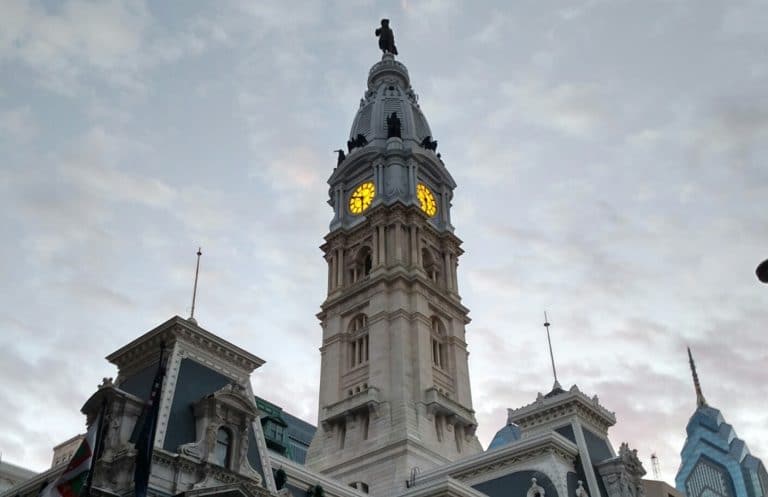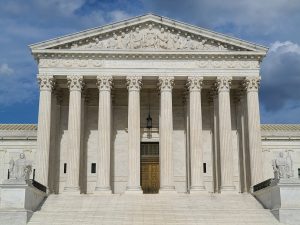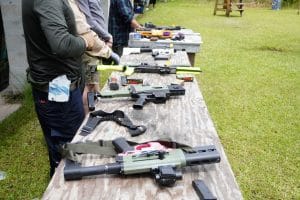Pennsylvania’s Supreme Court staved off a novel new attack on state preemption laws this week. That’s a setback for gun-control activists nationwide, but it won’t be the end of the fight–even in the city that launched the latest offensive.
In a unanimous 6-0 decision, the heavily Democratic court rejected a lawsuit from Philadelphia that argued the state’s roughly 50-year-old statutory scheme prohibiting local governments from passing their own gun regulations is unconstitutional. The city argued that the state Constitution implicitly granted local officials the right to pass strict gun laws, but that interpretation didn’t persuade a single member of the court.
“Here, Appellants seek an interpretation of Article I, Section 1 of the Pennsylvania Constitution that would designate the individual right to ‘defend life and liberty’ not just as a collective right, but as a collective right to self-defense from private acts of gun violence, specifically by means of local legislation,” Justice Kevin Brobson, one the court’s two Republicans, wrote. “Simply put, Appellants provide no basis upon which to conclude that the right to ‘defend life and liberty’ set forth in Article I, Section 1 is so broad as to encompass such a right.”
Gun-control activists and city officials in red-leaning states have long had an antagonistic relationship with state preemption laws. Yet, the Philadelphia suit marked the first time any tried to have them stricken as unconstitutional. Often, these novel lawsuits serve as trial balloons that, if successful, become templates for gun-control groups to use when seeking success elsewhere. After all, Pennsylvania is only one of more than 40 states with similar prohibitions on local gun control.
That’s why, even though the city and a local gun-control group initiated the Philadelphia case, it had the attention and support of several national groups, including Giffords and Brady.
That the courts soundly rejected the idea in the first locality gun-control advocates attempted it likely reduces the odds of further attempts in other states. However, it probably won’t change much about Philadelphia’s appetite for fighting the state for stricter gun regulations. Already, city officials have pledged to remain resolute in the face of legal defeat.
“The Parker administration will continue to seek remedies to Philadelphia’s deadly gun violence crisis through every legal tool in the toolbox at our disposal,” Ava Schwemler, a spokesperson for the city’s law department, told The Reload after the decision came down.
Philadelphia will almost certainly continue to pass new gun restrictions. After all, that has been the city’s go-to playbook for decades.
In 1993, the city passed an “assault weapon” ban. In 1996, the Pennsylvania Supreme Court struck it down under preemption in Ortiz v. Commonwealth. In 2007, the city passed another assault weapon ban alongside six other gun-control measures ranging from special licensing for gun ownership to an ammunition registry. In 2008, Pennsylvania courts stuck down those measures in Clarke v. House of Representatives. As recently as 2022, a state judge blocked the city’s attempt to create new gun-free zones.
So, the city and its elected officials embraced defiance against state preemption long before last Wednesday’s ruling. They even scored a rare court victory in the fight earlier this year.
In February, the Commonwealth Court of Pennsylvania upheld a 2021 Philadelphia ordinance outlawing the possession, use, transfer, or manufacture of homemade guns and gun parts. The majority reasoned that even though Pennsylvania law preempts local gun restrictions, unfinished gun parts are not actually firearms, and therefore, the city can regulate them.
Finally, the lack of significant consequences for Philadelphia’s continued defiance makes it all the more likely to continue.
Elsewhere, states fed up with localities flouting state preemption have begun passing “enhanced” preemption laws designed to extract civil damages from local governments when their restrictive ordinances lose in court. Pennsylvania lawmakers tried the same thing in 2022, but then-Governor Tom Wolf (D.) vetoed it. Since then, Democrats have retained the Governor’s seat and gained a majority in the state House, making another effort to bolster preemption unlikely.
Furthermore, Philadelphia elected officials have little concern about facing a political cost for their continued resistance. In the deep blue city, regularly warring with the more conservative state government and gun-rights groups over attempts to pass strict gun laws is a boon, not a drag, for the city’s leaders.
Still, the court decision takes an extremely expansive reading of how much power local officials have to restrict firearms. That’s something gun-rights advocates are certainly happy about.
“The underlying legal theories pressed in the Pennsylvania Supreme Court were radical,” Robert Leider, a George Mason University law professor and Second Amendment scholar, said of the ruling. “These theories were premised on the state legislature having a positive constitutional obligation to enact rigorous regulatory laws—constitutionally entrenching progressive government.”
But Philadelphia will probably go on disregarding preemption, passing its own gun laws, and forcing gun-rights groups to play whack-a-mole with individual lawsuits until stronger disincentives for doing so come along.






